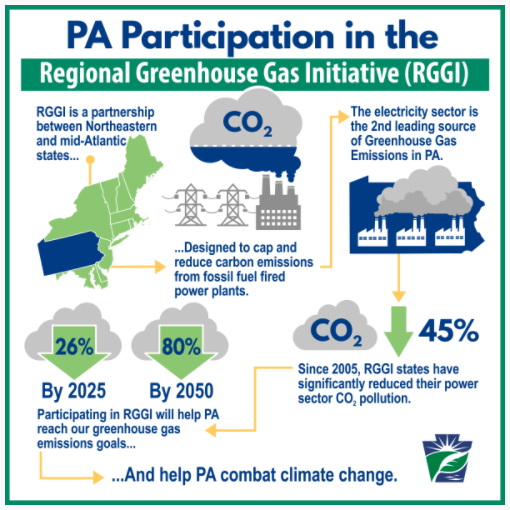
BPA Submits Comments on Pennsylvania Regional Greenhouse Gas Initiative Regulations
January 25, 2021

Last week, the Building Performance Association submitted comments on the Pennsylvania Environmental Quality Board’s (EQB) proposed amendment to Chapter 145 to establish a trading program for carbon dioxide emissions and join the Regional Greenhouse Gas Initiative (RGGI).
While BPA has supported PA’s entry into RGGI in the past, the most recent comments include new 2020 E4TheFuture/E2 Energy Efficiency Jobs in America Report numbers that show Pennsylvania is still in 41st place in energy efficiency jobs (as they also were in 2019).
BPA supports RGGI because other states that have joined have increased energy efficiency jobs while keeping electricity costs low. BPA’s letter urged the EQB to approve the proposed CO2 Budget Trading Program Regulation because it will help increase the 71,443 energy efficiency jobs in Pennsylvania, many of which are part of a highly skilled workforce. Joining RGGI could help PA catch up with its neighboring states in the creation of energy efficiency jobs. Adopting RGGI is a valuable and proven tool that will get results.
Previously, on December 10, 2020, BPA testified on the proposed CO2 Budget Trading Program Regulation before the EQB to support Governor Wolf’s rulemaking proceedings. BPA has been working with local partners and home performance contractors to support Gov. Wolf’s efforts to join the RGGI. BPA’s testimony emphasized that participating RGGI states have invested over half their proceeds into energy efficiency, generating over $4 billion in economic benefits. BPA’s testimony emphasized that joining RGGI will support EE jobs and economic development in Pennsylvania.
Approving RGGI will also increase public and private investments in energy efficiency and other clean energy technologies in PA creating more jobs in a state that has been severely impacted by COVID. BPA will continue to monitor and promote clean energy initiatives like RGGI when BPA’s members and contractors are engaged in a policy issue and request technical assistance.
